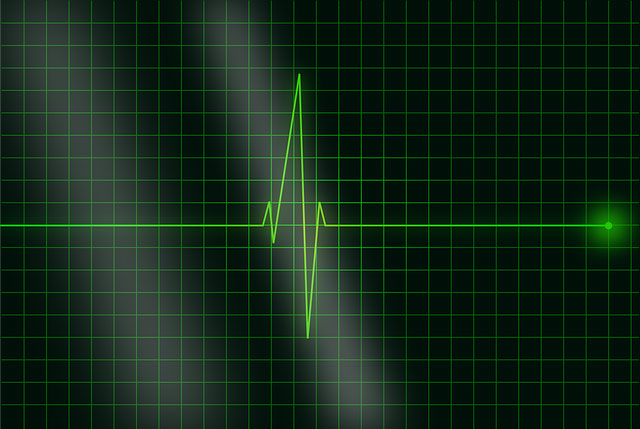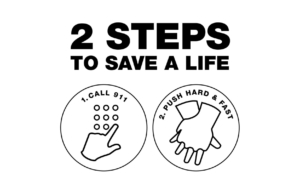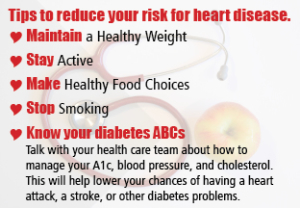When Your Life Is On The Line
Bonners Ferry Living Local February – Time Sensitive Emergency
By Alana Temple, RN, BSN
Boundary Community Hospital Emergency Department

Every year approximately 790,000 Americans suffer a heart attack and for 580,000 it is their primary or first time attack, while 210,000 occur in individuals who have a history of a prior attack. A heart attack, or myocardial infarction occurs when a part of the heart does not receive the correct blood flow. Most cases of heart attack occur due to underlying coronary artery diseases.
It is important to recognize the signs and symptoms of a heart attack so that medical treatment can be obtained, reduce the risk of damage, and help prevent cardiac arrest. The more time that passes before restoring blood flow to the area, the greater the damage and risk for sudden cardiac arrest.
Not everyone will have the same symptoms or the same severity of symptoms. Some may have no symptoms but may just experience sudden cardiac arrest. Symptoms of a heart attack may include chest pain or pressure with or without radiation to one or both arms, jaw pain, pain in the mid back, shortness of breath, dizziness, nausea, vomiting and feeling sweaty or clammy, and pale skin.
 If you, or someone else, is experiencing any of these symptoms, CALL 911 ! Getting medical treatment on the way to the victim is key for survival. In a rural area it is tempting to place the person in a vehicle and rush to the Emergency Room. It is much better and safer to call 911 and get medical treatment headed to the victim. Emergency medical personnel that respond can start treatments as soon as they arrive. They are equipped to perform an electrocardiogram to determine the heart’s rhythm, start an intravenous line to administer medications, draw blood for laboratory testing and, most importantly, they carry an automated external defibrillator (AED) to use if needed to provide a shock to the heart. Calling 911 also alerts the team in the emergency department of the hospital that there is a chest pain call in progress.
If you, or someone else, is experiencing any of these symptoms, CALL 911 ! Getting medical treatment on the way to the victim is key for survival. In a rural area it is tempting to place the person in a vehicle and rush to the Emergency Room. It is much better and safer to call 911 and get medical treatment headed to the victim. Emergency medical personnel that respond can start treatments as soon as they arrive. They are equipped to perform an electrocardiogram to determine the heart’s rhythm, start an intravenous line to administer medications, draw blood for laboratory testing and, most importantly, they carry an automated external defibrillator (AED) to use if needed to provide a shock to the heart. Calling 911 also alerts the team in the emergency department of the hospital that there is a chest pain call in progress.
If you witness a person with sudden cardiac arrest, immediately call 911 and then begin hands only cardiopulmonary resuscitation (CPR). Place your hands in the center of the chest, push fast and hard and do not stop until help arrives. A good way to determine how fast is to think of the song “Staying Alive” and push to the beat. Hands only CPR is CPR without rescue breaths and it has been shown to be as effective as conventional CPR for sudden arrest at home or in the public. According to The American Heart Association 2016 statistics nearly 46 percent of out of hospital cardiac arrest victims survived when bystander CPR was administered.
Unfortunately, only about 45 percent of people in sudden cardiac arrest received bystander CPR. You may fear doing CPR incorrectly or injuring the victim, but please remember that the emergency is that the heart is not beating and the loss of the circulatory system. If in doubt, always call 911 and start CPR, you quite possibly can save a life!
 February is American Heart Health Month and the perfect time to learn your risk for heart disease and the steps to reduce them. Heart disease does not just occur in older adults, it can happen at any age. Some risk factors include high blood pressure, high blood cholesterol, being diabetic and smoking. The biggest part of heart health comes down to making healthy choices. Age and family history cannot be changed but the good news is that modest changes to your diet and lifestyle can improve your heart health and lower your risk by up to 80 percent.
February is American Heart Health Month and the perfect time to learn your risk for heart disease and the steps to reduce them. Heart disease does not just occur in older adults, it can happen at any age. Some risk factors include high blood pressure, high blood cholesterol, being diabetic and smoking. The biggest part of heart health comes down to making healthy choices. Age and family history cannot be changed but the good news is that modest changes to your diet and lifestyle can improve your heart health and lower your risk by up to 80 percent.
###
Boundary Community Hospital has been designated as Level IV Trauma Center and is in the process of being designated as a Level II STEMI Center by the State of Idaho Time Sensitive Emergency Program
